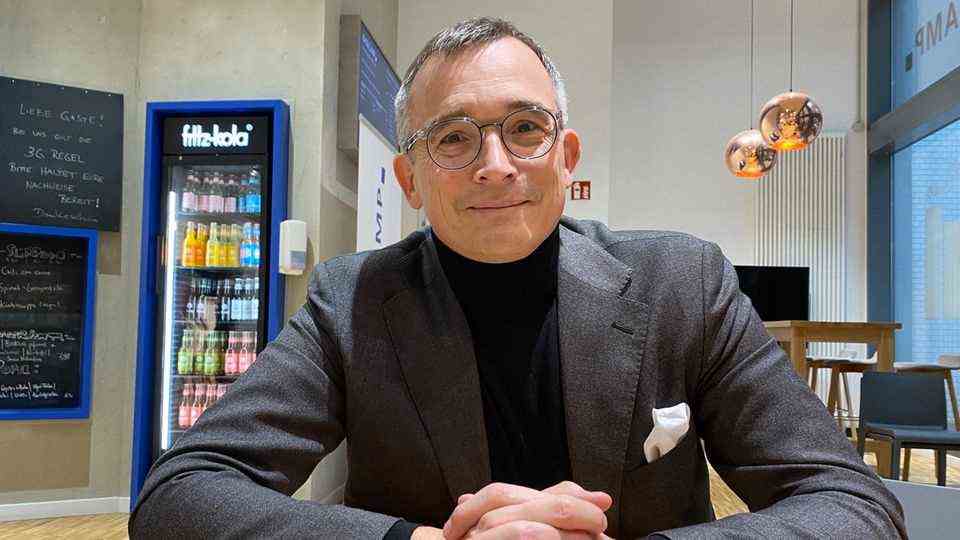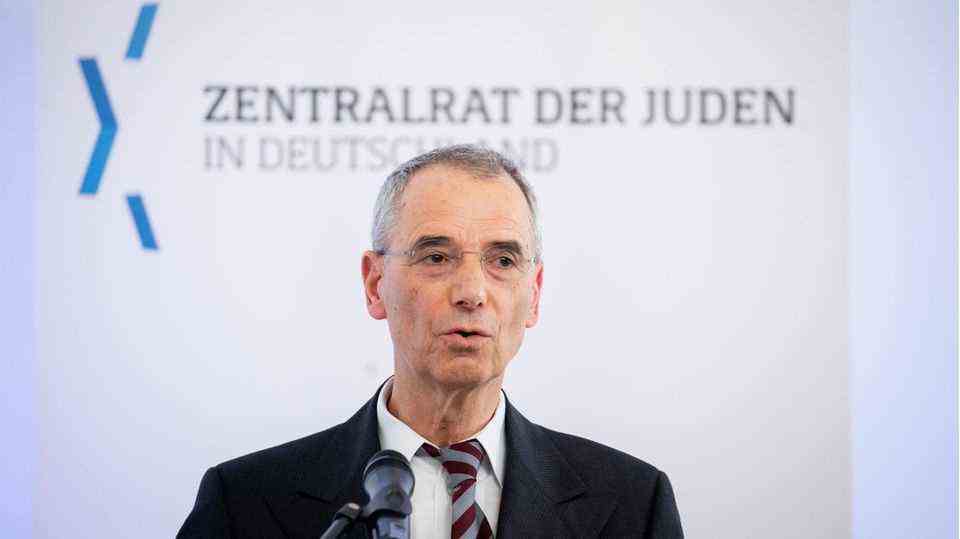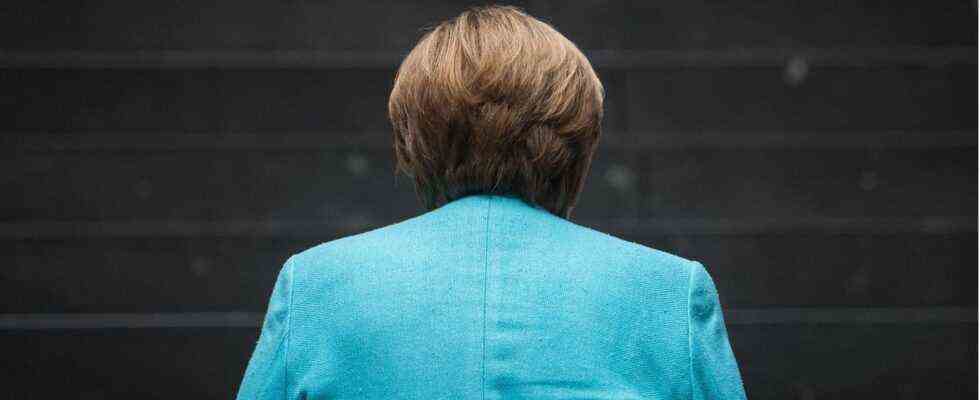What remains of the Angela Merkel era? Historians should also judge that – says Angela Merkel. So we asked three.
Crises: she can do that, they have shaped her chancellorship. Financial crisis. Euro crisis. Refugee crisis, the so-called – a verbal mistake, she says, because: Refugees are not a crisis, they are people. Corona crisis. Angela Merkel, the crisis chancellor, once climate chancellor. But she never was one thing: a historian.
Their term of office ends after 5860 days. On Wednesday, Olaf Scholz will be sworn in as the 9th Federal Chancellor of the Federal Republic of Germany. Its beginning marks her departure, the end of a 16 year long political era. What remains?
“Balance sheets should be done by others”, said the soon-to-be-former chancellor in her last summer press conference.
Your greatest success, your greatest failure? “Ultimately, this is a historical debate that others should lead,” she replied in the farewell interview “Frankfurter Allgemeine Zeitung”.
Did she lack visions? “Now you are trying to lead me into the perspective of a historian who I am not,” she parried in an interview with the “Süddeutsche Zeitung”.
No, history is not their science. Merkel is a scientist, although she “always thinks things from the end”, what the former EU Commission President Jean-Claude Juncker likes about her. “Respice finem”, thinking everything from the end, a slogan that she once gave herself: “Even I, who have not learned Latin, remembered that”, she said.
Now it’s here, the end. How will your tenure be remembered? Because Merkel suggested that historians should probably judge that, we asked three of them. These are their answers.
“Above all, it leaves a need for orientation”
“Angela Merkel, as a Protestant woman from the GDR in a West German-male CDU with its networks, stands for an unprecedented career in German politics,” said the historian Andreas Rödder from Johannes Gutenberg University Mainz star. In addition, she was the chancellor of a historically unique cluster of serious crises, “comparable to Helmut Schmidt, only the crises were even more violent.”

© Anne-Beatrice Clasmann / DPA
As a special feature of her term of office, Rödder defines the “calmness and an unpretentious demeanor” with which she embodied the counter-image to “testosterone-controlled men”. “All this plus the energy transition and migration policy made them the projection surface of a left-liberal milieu of opinion-forming middle classes that they considered to be one of their own.” At the same time it has become a “projection surface for a radicalizing right and its conspiracy theories”.
However, the historian also sees little substance behind the projections. It followed the “situation of the moment”, but not a longer-term strategy. “The result was fundamental contradictions and dependencies,” says the historian: “the contradiction between the ‘humanitarian imperative’ of the migration crisis of 2015 and the agreement with Turkey made the EU dependent on Turkey; the energy transition made Germany dependent on Russian gas supplies and to considerable tension with western and eastern partners; the concentration on exports to China made Germany dependent on foreign policy. ” Democratic opinion-forming was not her business, she had reduced the CDU to “a pure power-securing machine” – although two were always involved. “The result is not only a CDU that has been gutted in terms of content, but also a speechless civil rights in Germany,” said Rödder. “After 16 years, Angela Merkel leaves one thing above all else: a need for orientation.”
“In many areas it can only get better”
“Merkel’s chancellorship was a step forward in terms of gender politics,” said the historian and journalist Michael Wolffsohn zum star. “Finally a woman. Unpretentious and cleverer than most of the men around her.” Otherwise Wolffsohn is critical of Merkel’s tenure.

© Kay Nietfeld // Picture Alliance
You have used terms like “European values” without naming content. Your “humanitarian imperative” sounded beautiful in the refugee movement in 2015 and, due to the echo of Kant (“categorical imperative”), sounded well-educated. “The consequences? Not exactly humane, albeit unwanted: More terror, tailwind for Brexit, further shift to the right in Poland and Hungary, revival of the AfD.”
Her political strategy resembled a “rival copy”, whereby she “smashed” her party. One “owes” her with Horst Koehler and Christian Wulff (both CDU) two “contourless federal presidents”, the “brilliant” Joachim Gauck she wanted to prevent. Your foreign policy was a “disaster”, says Wolffsohn: “USA: Nice words with Bush Jr. Obama and Biden. Result? 0. Crashing with Trump. Good PR. Result 0. Ukraine strangled by North Stream 2, Russia courted and At the same time distant. Not fish, not meat to China. Iran: Promoting the conventional advance, which nuclearization does not prevent. Afghanistan and Mali: Without a strategy, the lives of our citizens in uniform are senselessly sacrificed. ” The historian’s conclusion: “In many areas things can only get better.”
“Most likely what remains is what Merkel has normalized as a person”
A prognosis is difficult, but: “How we think about Merkel will also largely depend on how differently their successors treat our republic,” said the historian and author Moritz Hoffmann. With Angela Merkel, “a new type of power has come into office”.
As Chancellor “without particularly clear lines of content”, she repeatedly took over issues from the opponent and thus withdrew from him election campaign issues. Progress issues that had slowed down the CDU and CSU were finally implemented under their government: the suspension of conscription, the nuclear phase-out, the refugee policy in 2015. “These were all issues that a red-green government could never have implemented without danger to run, to be reversed after the next election, “said Hoffmann. However, her strategy of “asymmetrical mobilization” also resulted in “issues that Merkel was not forced to be left behind: digitization, the health system, security policy, for example, were ignored, and it will take a while for Germany to catch up again. “
Hoffmann suspects that what remains is “what Merkel has normalized without ever having made it her ‘Unique Selling Point'”: she grew up, trained and socialized in the GDR, a woman, with a disappointing election result for the first time came into office – and, contrary to many ideas, stayed in office for a long time. “A whole generation of young people will now have to get used to the fact that a man can also be chancellor,” said Hoffmann, “we will all have to get used to the fact that there is a strong opposition faction in the Bundestag”. Both keep our democratic minds fit. “First of all, that’s good.”

